Contents
Guide
In memory of my mom and dad,Mrs. Texana and Mr. Mack C. Wiggins,who led by examplewho showed me how to beFor all the nameless and faceless foot soldierspast, present, and future
We aint going back, weve come too far, marched too long, prayed too hard, wept too bitterly, bled too profusely, and died too young to let anybody turn back the clock on our journey for justice.
REVEREND JOSEPH LOWERY, Dean of the Civil Rights MovementContents
For so many of us, so much of the past is a vague memory. Dr. Dr.
Martin Luther King Jr.a mountaintop speechif thats remembered. Or more often, a holiday. Selmaa movie. Jim Crowa thing that happened to some people somewhere a long time ago. Once, while doing a school visit, a fifth-grader asked me if I had been born a slave. And other questions from the mouths of otherwise brilliant young peopleWhats a Ku Klux Klan? and I think Moses burned a cross on the mountaintop and How come Black people are still so mad? They got equality already.
When we forget our past, its hard to understand our present. Harder still to imagine our future. Aint Gonna Let Nobody Turn Me Round is a love song to the past by someone who was there. Kathlyn Kirkwood tells her story with warmth, love, and keen memory. The past wasnt always pretty. It wasnt always kind.
It was never easy. But it is the shoulders we stand on now. As we continue to fight toward a world where all people have the same civil rights, we can open this book, dive into the narrative in verse, and step into a movement that would forever change America. We can meet the people who were a part of that movement. We can grow to love them and begin to understand our connection not only to the past, but to the people who resisted and fought for the rights we have today. Aint Gonna Let Nobody Turn Me Rounda title coming from the African American civil rights song from the early twentieth centuryis just as relevant now as it was then.
We are on a journey toward something better. And we really arent letting anyone stop us. While the people who were there still live and are able to tell their stories of the past, we must lean in and listen. And through the listening, remember. JACQUELINE WOODSON You dont know my face or my name, but the day Dr. was killed, I became a foot soldier: a doer, a worker, an everyday activist in the Civil Rights Movement.
I was just seventeen, a senior at Booker T.
I was just seventeen, a senior at Booker T.
Washington High in Memphis, Tennessee. I was editor in chief of our yearbook, The Warrior, and I played clarinet in the marching band. Yay for the green and gold!  Kathlyn and her brother Mack Carlos in band uniform, getting ready to start stepping high. Authors personal collection
Kathlyn and her brother Mack Carlos in band uniform, getting ready to start stepping high. Authors personal collection  The Cotton Makers Jubilee parade was the Black communitys annual celebration of the cotton harvest on Beale Street, separate from the Whites-only Cotton Carnival celebrated on Main Street. We loved stepping high to the musical beats led by the crowd-pleasing majorettes and drum major, erect and tall, right down Beale Street in the Cotton Makers Jubilee parade, the colored folks celebration of the cotton industry.
The Cotton Makers Jubilee parade was the Black communitys annual celebration of the cotton harvest on Beale Street, separate from the Whites-only Cotton Carnival celebrated on Main Street. We loved stepping high to the musical beats led by the crowd-pleasing majorettes and drum major, erect and tall, right down Beale Street in the Cotton Makers Jubilee parade, the colored folks celebration of the cotton industry.
Ugly things were happening in America, especially in the Deep South.
Ugly things were happening in America, especially in the Deep South.
Jim Crow was the law racism, discrimination, and segregation of Blacks and Whites. Made a lot of Black folks mad. I was just seventeen but it made me mad too. One man was leading the fight for change: Dr. Martin Luther King Jr. Preacher, teacher, drum major for peace, he led the Montgomery Bus Boycott in Montgomery, Alabama, the Birmingham Campaign in Birmingham, Alabama, the Freedom Walk in Detroit, Michigan, and so many other demonstrations, prayer vigils, and nonviolent protests for freedom, for justice, for equality. Made a lot of White folks mad.
The Negro Memphis sanitation workers went on strike.
They were tired of being treated like boys instead of men. They did grueling work every day with no place to eat, no place to shower, no sick days, no vacation days, no health care, no pension plan, for $1.70 an hour. Some still needed welfare just to live. The Negro sanitation workers were just BONE-TIRED.  The Community on the Move for Equality, a Memphis organization aimed at promoting social justice, called for boycotting the local newspapers because of their lack of support for the sanitation workers strike and racist coverage of Negro news in general (i.e., Hambones Meditations cartoons). Glenda Robinson Oates Personal Collection
The Community on the Move for Equality, a Memphis organization aimed at promoting social justice, called for boycotting the local newspapers because of their lack of support for the sanitation workers strike and racist coverage of Negro news in general (i.e., Hambones Meditations cartoons). Glenda Robinson Oates Personal Collection  The National Guard was called in during the sanitation workers strike in Memphis.
The National Guard was called in during the sanitation workers strike in Memphis.
One day, as the men carried leaky, maggot-filled garbage tubs to the truck, a packer blade malfunctioned. Two men, Echol Cole and Robert Walker, were crushed to death. The Negro sanitation workers decided to fight these horrible, inhumane working conditions. They started marching on Main Street EVERY DAY. They wanted good pay, job safety, and union recognition, just like the White sanitation workers. Seemed like NOBODY was listening. But Dr.
King was. He halted his plans for the Poor Peoples Campaign in Washington, DC, that would demand Congress work to end poverty across America. INSTEAD he came to Memphis to support and lead a march for the sanitation workers.
At my daddys barbershop, the men usually joked, laughed, shouted, and told tall tales. Not today. The only thing they talked about was why they were gonna march, why they
had to march.
Everyone remembered the two men whod died, the unfair pay, and how badly the Negro sanitation workers were treated. Flyers were everywhere. 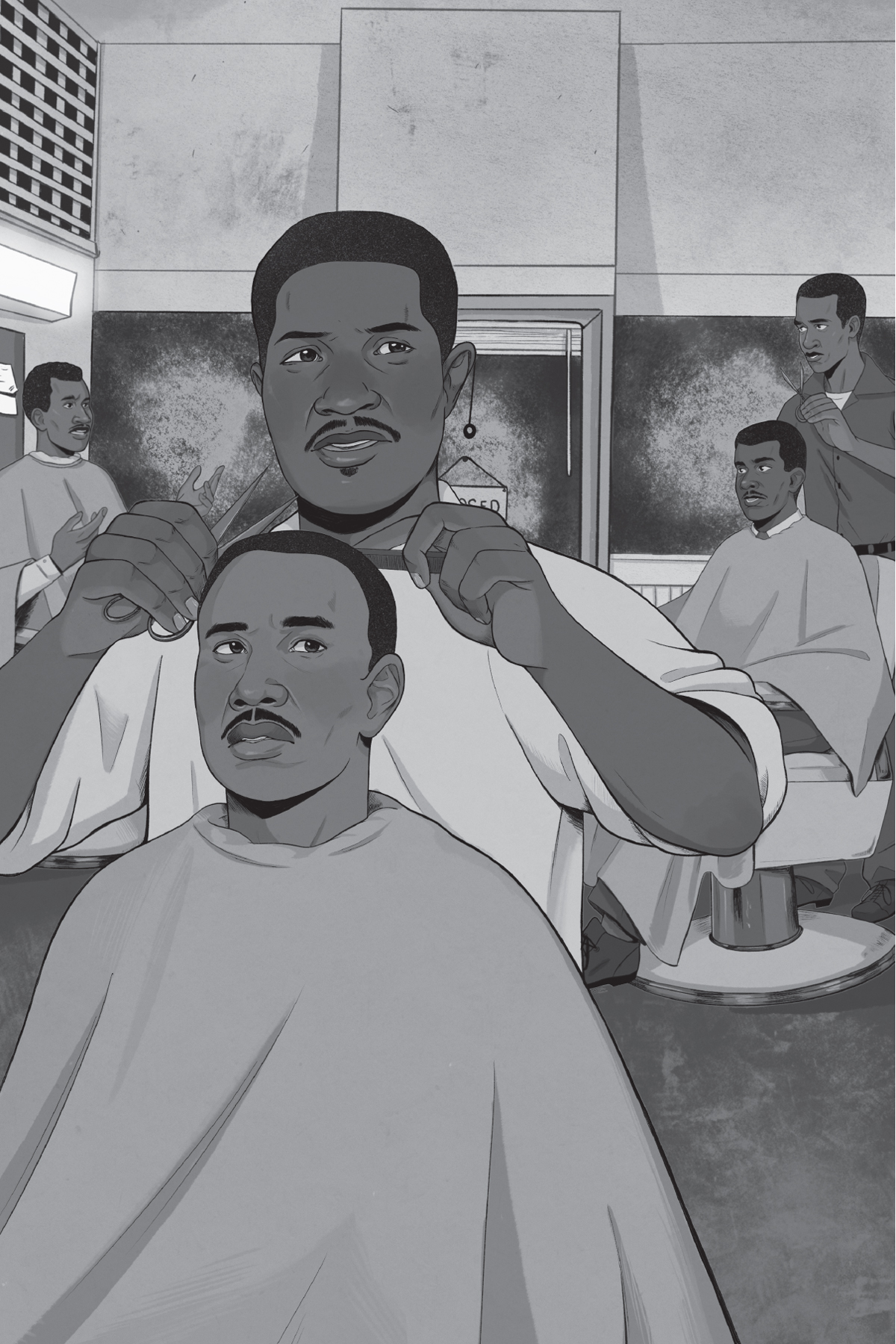 Mr. Wiggins, Kathlyns dad, cutting and styling, while waiting customers talk about supporting the striking sanitation workers and the upcoming protest march. Library of Congress; National Archives and Records Administration My friends and I were young, but we wanted to march too. I rushed home to see if I could.
Mr. Wiggins, Kathlyns dad, cutting and styling, while waiting customers talk about supporting the striking sanitation workers and the upcoming protest march. Library of Congress; National Archives and Records Administration My friends and I were young, but we wanted to march too. I rushed home to see if I could.
Stone-faced, Mama said, Okay... but you have to stay close to Daddy. I squealed and ran to call my friends. Mama said yes! All night, I tossed and turned, heart racing, thinking, imagining... my first march.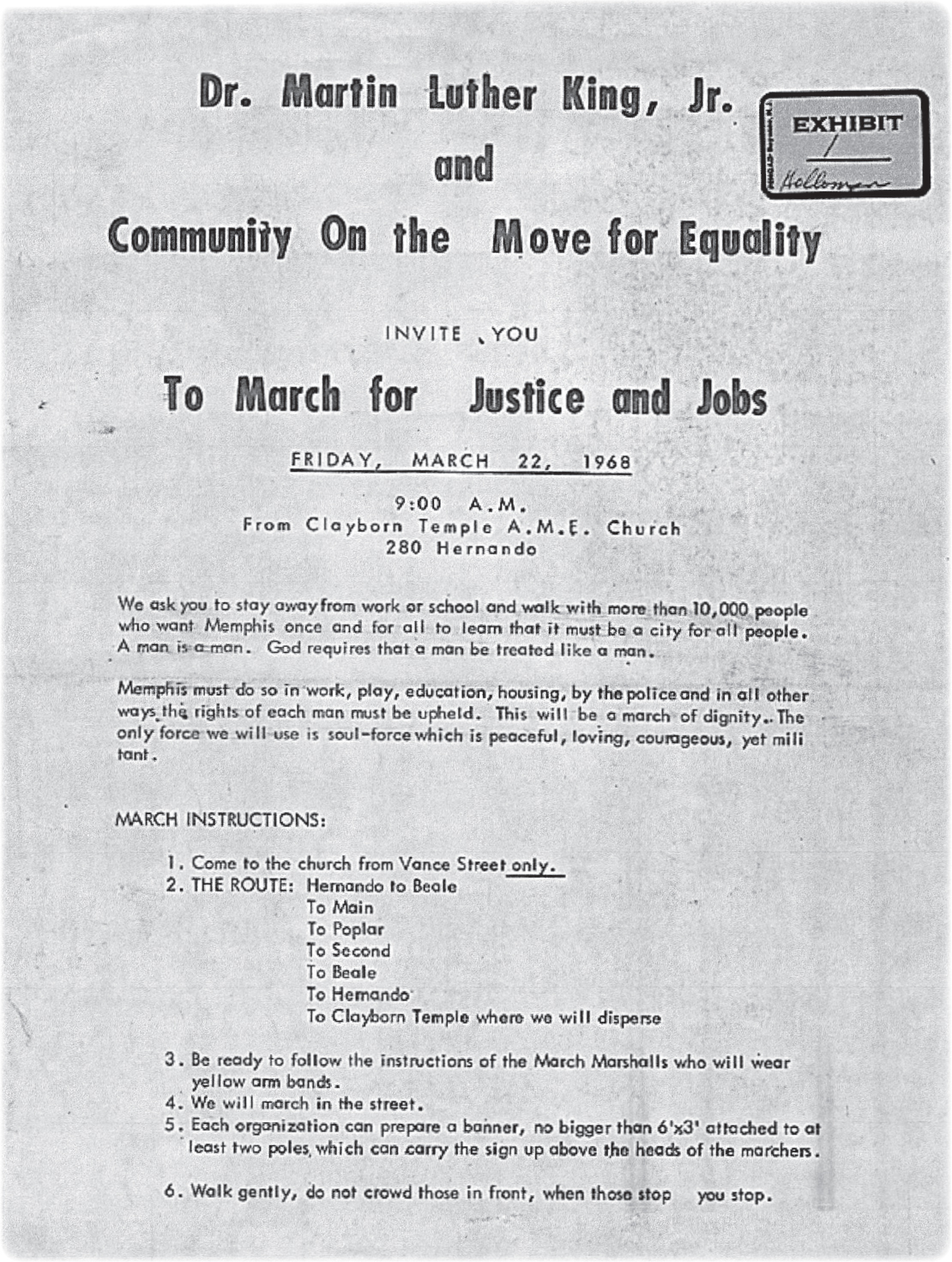

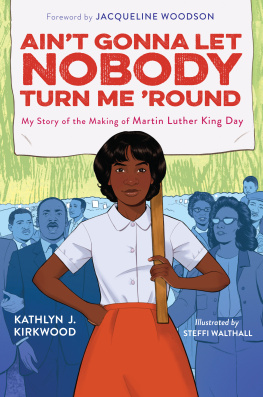
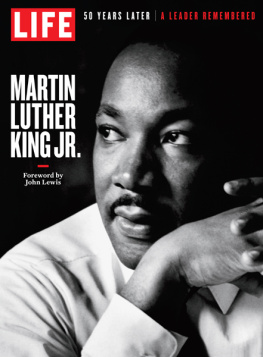
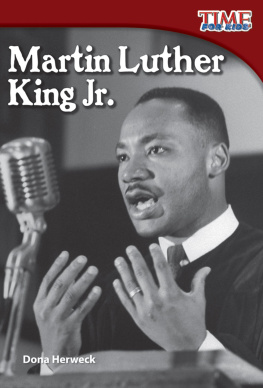
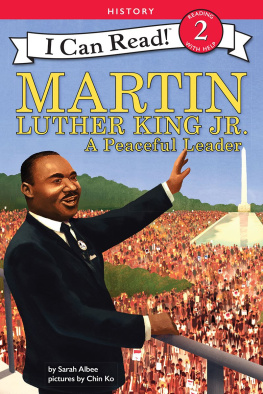


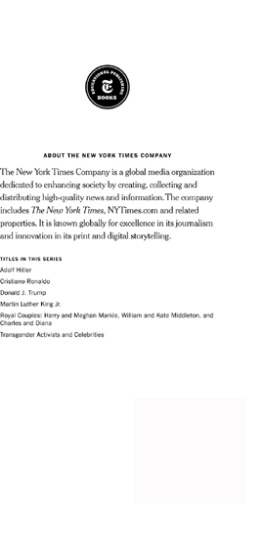

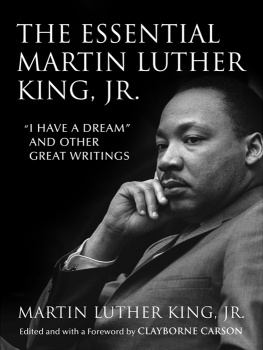
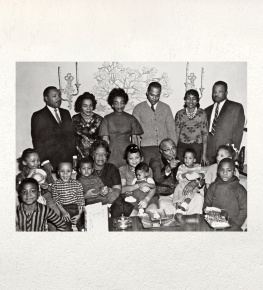
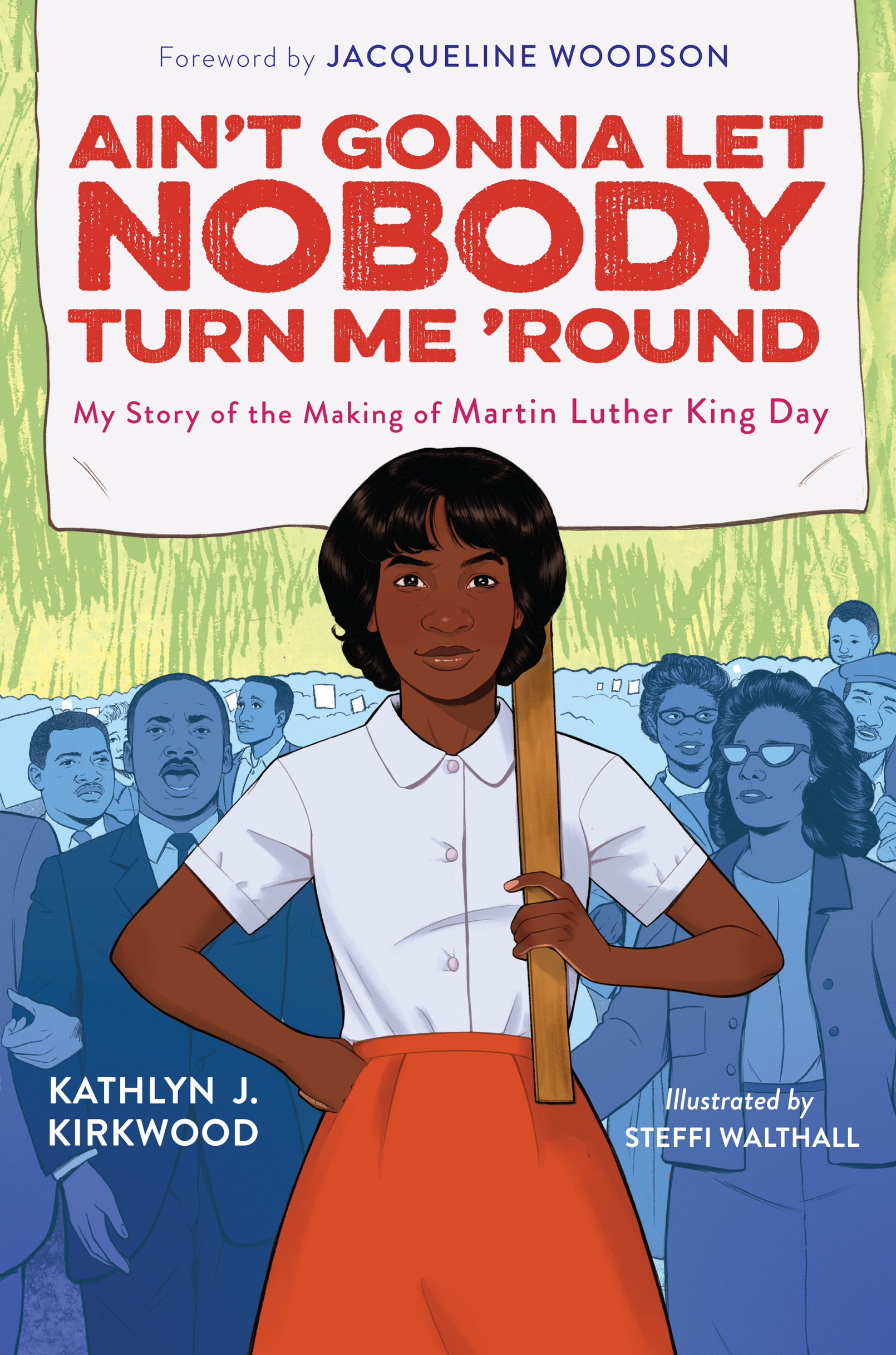
 We aint going back, weve come too far, marched too long, prayed too hard, wept too bitterly, bled too profusely, and died too young to let anybody turn back the clock on our journey for justice. REVEREND JOSEPH LOWERY, Dean of the Civil Rights Movement
We aint going back, weve come too far, marched too long, prayed too hard, wept too bitterly, bled too profusely, and died too young to let anybody turn back the clock on our journey for justice. REVEREND JOSEPH LOWERY, Dean of the Civil Rights Movement Kathlyn and her brother Mack Carlos in band uniform, getting ready to start stepping high. Authors personal collection
Kathlyn and her brother Mack Carlos in band uniform, getting ready to start stepping high. Authors personal collection  The Cotton Makers Jubilee parade was the Black communitys annual celebration of the cotton harvest on Beale Street, separate from the Whites-only Cotton Carnival celebrated on Main Street. We loved stepping high to the musical beats led by the crowd-pleasing majorettes and drum major, erect and tall, right down Beale Street in the Cotton Makers Jubilee parade, the colored folks celebration of the cotton industry.
The Cotton Makers Jubilee parade was the Black communitys annual celebration of the cotton harvest on Beale Street, separate from the Whites-only Cotton Carnival celebrated on Main Street. We loved stepping high to the musical beats led by the crowd-pleasing majorettes and drum major, erect and tall, right down Beale Street in the Cotton Makers Jubilee parade, the colored folks celebration of the cotton industry. The Community on the Move for Equality, a Memphis organization aimed at promoting social justice, called for boycotting the local newspapers because of their lack of support for the sanitation workers strike and racist coverage of Negro news in general (i.e., Hambones Meditations cartoons). Glenda Robinson Oates Personal Collection
The Community on the Move for Equality, a Memphis organization aimed at promoting social justice, called for boycotting the local newspapers because of their lack of support for the sanitation workers strike and racist coverage of Negro news in general (i.e., Hambones Meditations cartoons). Glenda Robinson Oates Personal Collection  The National Guard was called in during the sanitation workers strike in Memphis.
The National Guard was called in during the sanitation workers strike in Memphis. Mr. Wiggins, Kathlyns dad, cutting and styling, while waiting customers talk about supporting the striking sanitation workers and the upcoming protest march. Library of Congress; National Archives and Records Administration My friends and I were young, but we wanted to march too. I rushed home to see if I could.
Mr. Wiggins, Kathlyns dad, cutting and styling, while waiting customers talk about supporting the striking sanitation workers and the upcoming protest march. Library of Congress; National Archives and Records Administration My friends and I were young, but we wanted to march too. I rushed home to see if I could.